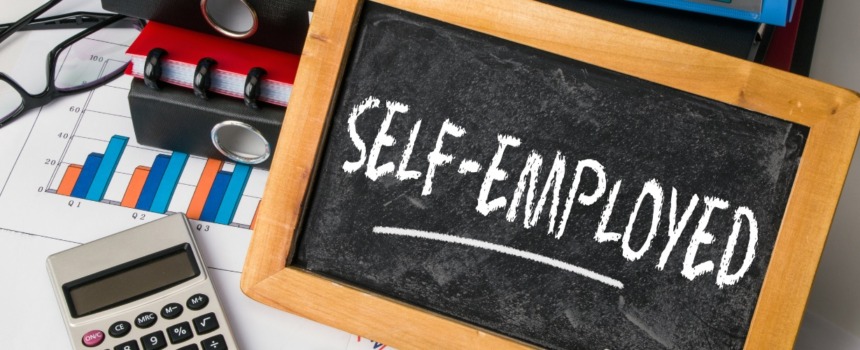If you’re a work-from-home business owner or solopreneur, you probably know that filing taxes is more complicated when you’re self-employed. However, the good news is that many of your expenses may be tax-deductible, reducing the tax you owe.
The IRS allows you to deduct “ordinary and necessary” costs for your business, so it’s critical to understand and track them throughout the year. You can’t afford to miss the following deductible expenses, especially if the rising inflation rate is stretching your business budget thin.
1. Office expenses
Most businesses have various office expenses, such as computer equipment, software, supplies, and shipping costs. Be diligent about identifying and tagging them throughout the year so you can deduct them and reduce your taxes.
2. Home office
You can claim the home office deduction if you primarily operate your business from a dedicated home office. That’s the case even if you occasionally work outside your home, such as in a coffee shop, coworking space, or customers’ homes. The deduction is available whether you own or rent the home where you run your venture.
Direct expenses for your home office, like a phone line, furnishings, and floor covering, are fully tax-deductible. Plus, indirect costs related to your office that affect your entire home, such as homeowners or renters insurance, utilities, maintenance, mortgage interest, and property taxes, are partially deductible.
You calculate the home office deduction using one of the following methods:
- The standard method requires you to keep good records and calculate the percentage of your home used for business. For example, if your home office is 12 feet by 10 feet, that’s 120 square feet. If your entire home is 1,200 square feet, dividing 120 by 1,200 gives you a home office space that’s 10% of your home.
In that example, 10% of your qualifying indirect expenses can get attributed to business use and the remaining 90% for personal use. If your monthly power bill is $100 and 10% of your home qualifies for business use, you can consider $10 of the bill a deductible home business expense.
- The simplified method doesn’t require you to keep any records and gives you $5 per square foot of your office area, up to 300 square feet. So, that caps your deduction at $1,500 (300 square feet x $5) per year. To save the most, use this method only if your space is 300 square feet or less and the standard calculation for a larger home office.
3. Education
If you purchase business-related education, such as virtual conferences, webinars, and courses to attract new clients and grow your business, it’s tax-deductible. Also, many professionals, such as physicians, lawyers, architects, and real estate brokers and agents, have continuing education requirements.
The expenses you incur to improve your business skills or maintain a professional license, such as online real estate education, are fully tax-deductible. They also include subscriptions to trade publications and relevant business books.
4. Vehicles
If your business requires you to drive, you can deduct the business use of your vehicle using one of the following methods:
- The standard mileage method requires you to track your business mileage for the year and multiply it by a standard rate to calculate your deduction. That’s typically best when you drive an economical vehicle. Due to the inflation rate and higher gas prices, the business travel rate for the final six months of 2022 increased from 58.5 cents per mile to 62.5.
- The actual expense method requires tracking your business mileage and expenses, such as maintenance, repairs, insurance, gas, lease payments, auto loan interest, and depreciation. The percentage of business use determines the deductible portion of those expenses. While it’s more work to keep up with, the actual method may give you a larger deduction than the standard mileage method.
5. Business travel
If you need to travel overnight for business, your airfare, hotel, ground transportation, tips, dry cleaning, and meals are tax-deductible. However, if it turns into a personal vacation, you can only deduct the business portion of your trip.
Note that you can typically only deduct 50% of your business meals. However, due to the pandemic, there’s a temporary enhanced 100% deduction through 2022 for restaurant business meals.
6. Contract labor
If you hire contractors instead of employees, their cost is tax-deductible. When you pay more than $600 per year, you must file Form 1099-MISC and send a copy to each worker by January 31, following the tax year.
7. Insurance
Your business insurance, such as errors and omissions (E&O), professional liability, or business interruption coverage, is tax deductible. Your personal auto insurance may also be partially deductible if you use the vehicle for business.
8. Retirement contributions
If you contribute to a retirement account, such as an IRA, SEP-IRA, or solo 401(k), don’t miss the opportunity to cut taxes and start building wealth. Your deduction depends on how much you contribute and your account type.
For 2022, the maximum IRA contribution is $6,000 or $7,000 if you’re over 50. If you contribute $6,000 to a traditional IRA by your tax filing deadline (mid-April or mid-October if you file an extension), you reduce your taxable income by that amount.
Self-employed retirement accounts, such as a SEP-IRA and solo 401(k), allow higher annual contributions, up to 25% of your net business earnings, up to $61,000. However, you must make your final contribution for the current tax year by December 31.
9. Professional fees
Professional service fees necessary to run your business, such as an attorney and consultant, are tax-deductible. The cost of working with a trusted business advisor or tax pro is deductible and worth every penny. So, if you have questions about qualifying business expenses or how to minimize your taxes, get help from a certified accountant.








Comments